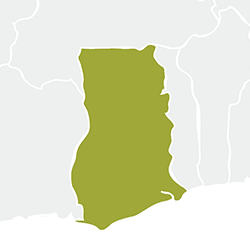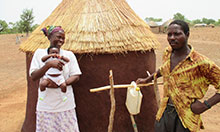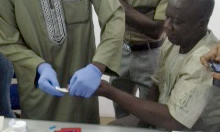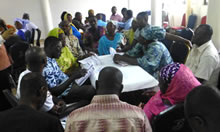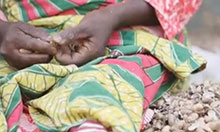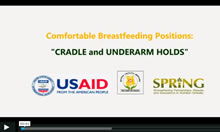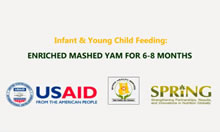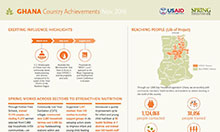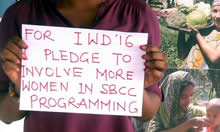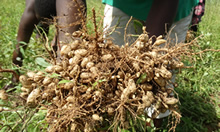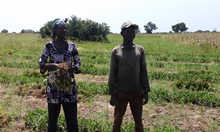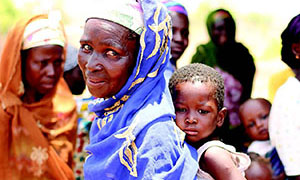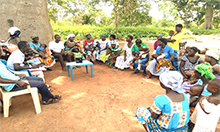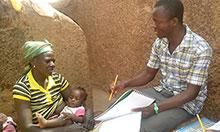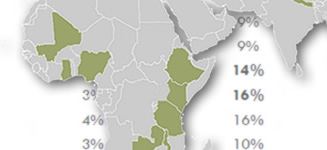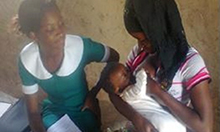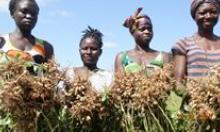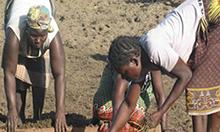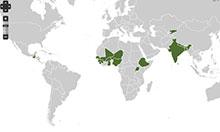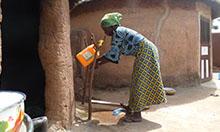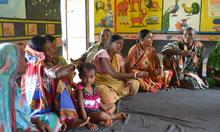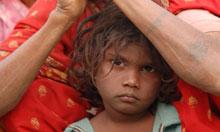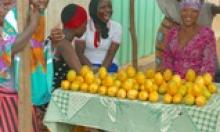SPRING/Ghana aimed to reduce stunting by 20 percent in two regions—Northern Region and Upper East Region. Working in 15 districts within these two regions, SPRING/Ghana’s activities included anemia reduction, infant and young child nutrition; water, sanitation, and hygiene; aflatoxin reduction; community video; and support to the LEAP 1000 cash transfers.
SPRING/Ghana defined its activities through the 1,000 Day Household approach, which targeted households with pregnant women and children 2 years of age and younger. This approach synthesized each intervention area into a holistic approach designed to support the ability of the1,000 day household to care for and support the 1,000 day child.
SPRING’s main partners in Ghana included Ghana Health Services, the USAID | DELIVER PROJECT, the Ghana LEAP Project, UNICEF, and RING.
Read our blog post: Improving Nutrition, One Latrine at a Time: WASH 1,000 Strategy in Ghana Takes Hold
SPRING/Ghana
Download a short description of our work in Ghana (PDF, 822.71 KB)
Activities
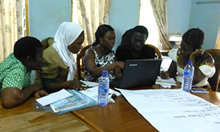
Activities | February 2015
Country Experiences Implementing the District Assessment Tool for Anemia (DATA)
News
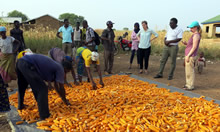
November 2016
From November 1 – 2, 2016, SPRING/Ghana hosted visitors from USAID/Ghana and USAID/DC for a visit to Karaga District in the Northern Region and Bawku West District in the Upper East Region. Rebecca Fertziger, deputy director of the USAID/Ghana Health...
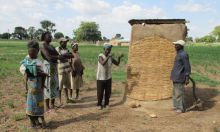
November 2015
Today, more people have access to mobile phones than to toilets, according to the WHO. While this may sound unbelievable, it is a daily reality for the 2.4 billion people without adequate sanitation. To highlight this lack, the SPRING project is part...
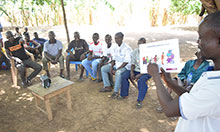
June 2017
In 2017, SPRING/Ghana started piloting Father-to-Father Support Groups in four communities in the Northern and Upper East Regions of Ghana. These groups are comprised of 15-17 men who meet twice per month to discuss family-oriented issues that includ...
Media
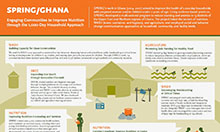
Infographics | September 2017
SPRING/Ghana: Engaging Communities to Improve Nutrition through the 1,000-Day Household Approach
Publications
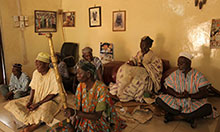
Training Materials | September 2016
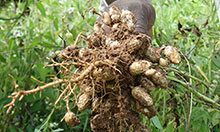
Job Aids and Tools | July 2017
SPRING around the Web
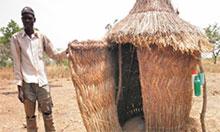
Blog summaries | August 2017
Improving Nutrition, One Latrine at a Time: WASH 1,000 Strategy in Ghana Takes Hold
